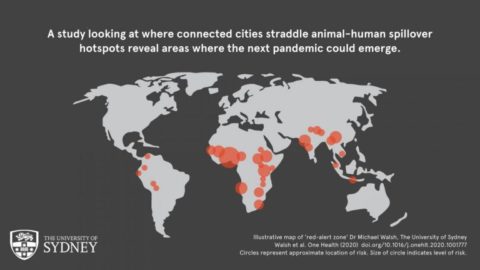TL:DR – At the time of writing, vaccination of COVID-19 was getting underway. It is still highly recommended despite the disinformation, fake news, and conspiracy theories.
In a few month’s time, the first 10 million people will have been vaccinated against covid. Within two months, 4000 of those people will have a heart attack, 4000 will have a stroke, 10000 will be diagnosed with cancer, 14000 will die.
How many of those illnesses and deaths will be due to the vaccination? None of them.
But, the antivaxxers will start to claim some of those 4000 strokes, those 10000 cancers, those 14000 deaths as being caused by the vaccine. They will be wrong to do so. Why, because if we were to start counting 10 million people from today, none of them yet vaccinated against covid, within two months, 4000 of those people will have a heart attack, 4000 will have a stroke, 10000 will be diagnosed with cancer, 14000 will die.
If you know 100 people of all different ages and demographics, then one of them will have a heart attack within the next four years, one of them will have a stroke in that time, a couple of them will be diagnosed with cancer, and in those same four years, 2-3 will actually die. That’s the statistics. If you’re one of somebody else’s 100 friends, then you could be in any of those groups. This is the normal of life, disease, and death.
In the new-normal of the covid world, we need as many people as possible to be vaccinated to quash the spread of this new virus, otherwise there will be much bigger numbers to record in all of the above.
Drug discovery scientist Derek Lowe has much more to say on this topic having built on a twitter thread from Bob Wachter (Chair, University of California San Francisco Department of Medicine).
Of course, once we’re vaccinating millions of people, there will be some side effects and there will be some effects that arise that might be caused by the vaccine or just other random effects of the human condition. The fact is though, that the morbidity and mortality rates for covid will far outstrip any side effects of adverse reactions seen in the people who get the vaccine, this much is true from the trials of thousands of people who have been tested with the vaccine already.
The antivax movement will jump on every disease, every death gleefully proclaiming that the vaccine is to blame. But, 14000 in every ten million people would die in any random two month period before we’d even heard of covid. Now, that we have covid with us that is an extra cause of death to add to our terminal list. Vaccination will minimise those extra deaths, so that hopefully none of us will lose too many of our 100 friends to this dreadful disease.

